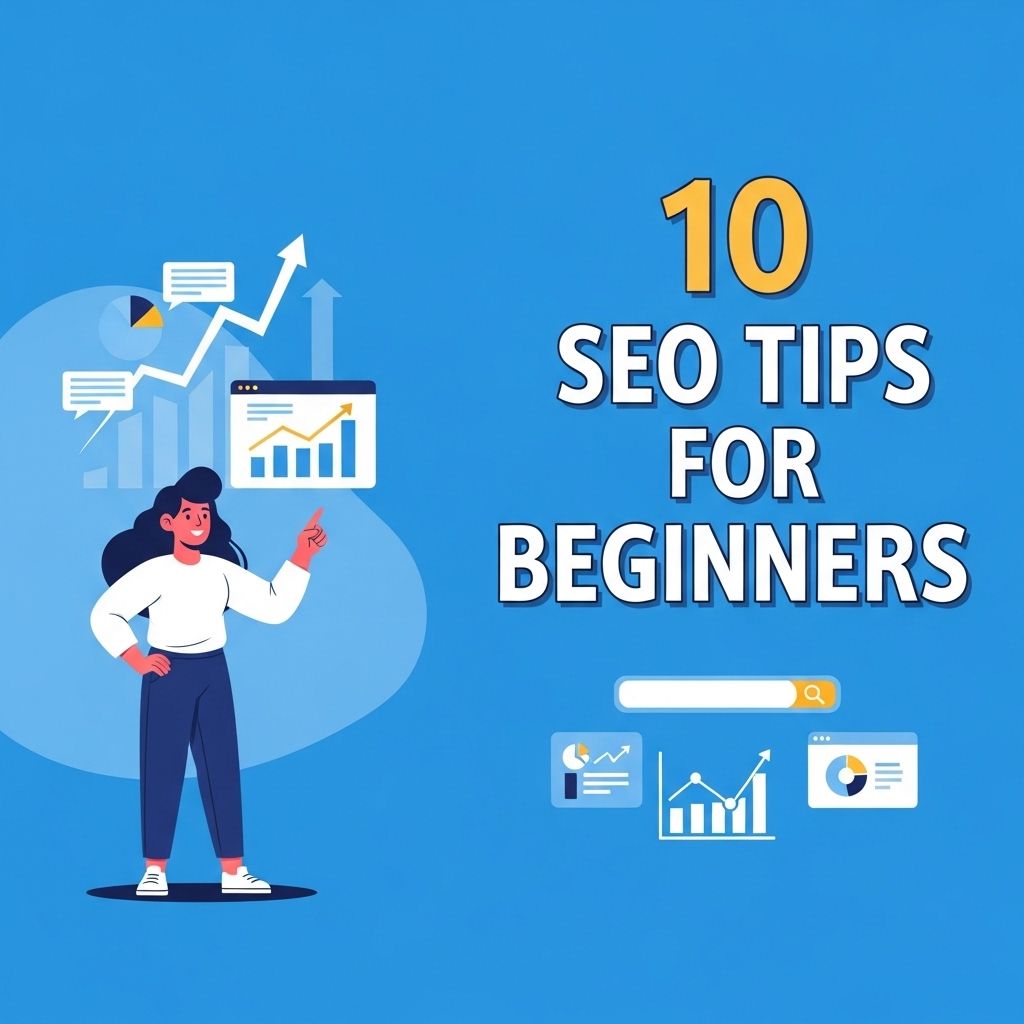In today’s digital landscape, understanding the principles of Search Engine Optimization (SEO) is crucial for anyone looking to establish a strong online presence. Whether you’re a blogger, a business owner, or a digital marketer, mastering the fundamentals of SEO can significantly impact your website’s visibility and performance. This article provides essential tips that every beginner should know to get started on the right foot in the world of SEO.
Understanding SEO Basics
SEO is the practice of optimizing your website to rank higher in search engine results pages (SERPs). The higher your site ranks, the more likely people are to visit it. There are various components of SEO, including on-page SEO, off-page SEO, and technical SEO, all of which play a vital role in your website’s overall performance.
What is On-Page SEO?
On-page SEO refers to the elements on your website that you can control. This includes:
- Content quality and keyword optimization
- Title tags and meta descriptions
- Header tags and structure
- Image optimization
What is Off-Page SEO?
Off-page SEO involves external factors that influence your website’s ranking. This includes:
- Backlink building
- Social media engagement
- Brand mentions
What is Technical SEO?
Technical SEO focuses on the backend aspects of your website that affect its visibility in search engines. This includes:
- Website speed
- Mobile-friendliness
- Sitemaps and robots.txt files
- Structured data
1. Conduct Keyword Research
Before creating content, identify the keywords and phrases your target audience is searching for. Tools like Google Keyword Planner, Ahrefs, and SEMrush can help you find relevant keywords. Focus on:
- Search volume
- Keyword difficulty
- Long-tail keywords (specific phrases with lower competition)
2. Optimize Your Content
Once you’ve identified your keywords, it’s time to create content that is informative and engaging. When optimizing your content, consider the following:
- Use keywords naturally in your text, especially in the first paragraphs.
- Include keywords in headings (H1, H2, H3).
- Maintain a keyword density of about 1-2%.
3. Craft Compelling Title Tags
Your title tag is one of the first things users see in SERPs. A compelling title can significantly increase your click-through rates (CTR). Keep these tips in mind:
- Limit title tags to 60 characters.
- Include your primary keyword at the beginning.
- Make it enticing to encourage clicks.
4. Write Effective Meta Descriptions
A meta description gives a brief overview of your content and can also influence your CTR. Follow these guidelines:
- Keep it under 155 characters.
- Include the main keyword.
- Make it a call to action.
5. Utilize Header Tags Properly
Header tags help structure your content for both users and search engines. Use them to:
- Break up text for better readability.
- Indicate the hierarchy of information.
- Include relevant keywords.
6. Optimize Images
Images can enhance your content but can also slow down your site if not optimized. Consider these tips:
- Use descriptive file names.
- Include alt text with relevant keywords.
- Compress images to reduce file size.
7. Improve Website Speed
Website speed is a critical ranking factor. Here are ways to enhance your site’s performance:
- Use a reliable hosting service.
- Minimize HTTP requests.
- Enable browser caching.
- Optimize CSS and JavaScript.
8. Ensure Mobile Friendliness
With more users accessing the web via mobile devices, having a mobile-friendly site is essential. Use Google’s Mobile-Friendly Test tool to evaluate your site. Ensure:
- Your site is responsive and adapts to various screen sizes.
- Buttons and links are easy to click.
- Text is readable without zooming.
9. Build Quality Backlinks
Backlinks from authoritative sites enhance your credibility and can boost your rankings. Consider these strategies:
- Create high-quality, shareable content.
- Engage with your community on social media.
- Reach out to influencers and bloggers for guest post opportunities.
10. Monitor Your SEO Performance
Regularly analyzing your SEO efforts helps you understand what’s working and what needs improvement. Utilize tools such as Google Analytics and Google Search Console to track:
- Organic traffic
- Keyword rankings
- Site performance metrics
Conclusion
By implementing these ten SEO tips, beginners can lay a solid foundation for their online presence. SEO is an ongoing process, requiring patience and adaptation to changes in search engine algorithms. Stay informed, continue learning, and watch your website grow in visibility and traffic over time.
FAQ
What is SEO and why is it important for beginners?
SEO, or Search Engine Optimization, is the practice of enhancing your website’s visibility on search engines. For beginners, understanding SEO is crucial as it helps drive organic traffic, improve user experience, and increase brand awareness.
How do I conduct keyword research for my website?
Begin by using tools like Google Keyword Planner or Ubersuggest to identify relevant keywords in your niche. Focus on search volume, competition, and user intent to select the best keywords to target.
What are on-page SEO techniques I should implement?
On-page SEO techniques include optimizing title tags, meta descriptions, header tags, and images, as well as ensuring your content is high-quality, relevant, and includes target keywords naturally.
How can I improve my website’s loading speed for better SEO?
You can improve loading speed by optimizing images, minimizing HTTP requests, leveraging browser caching, and using a content delivery network (CDN) to enhance performance across different locations.
What role do backlinks play in SEO?
Backlinks are links from other websites to yours, and they play a crucial role in SEO by signaling to search engines that your content is valuable and trustworthy, which can boost your site’s authority and rankings.
Is mobile optimization necessary for SEO?
Yes, mobile optimization is essential as search engines prioritize mobile-friendly websites in their rankings. Ensuring your site is responsive and provides a good user experience on mobile devices can significantly impact your SEO success.




